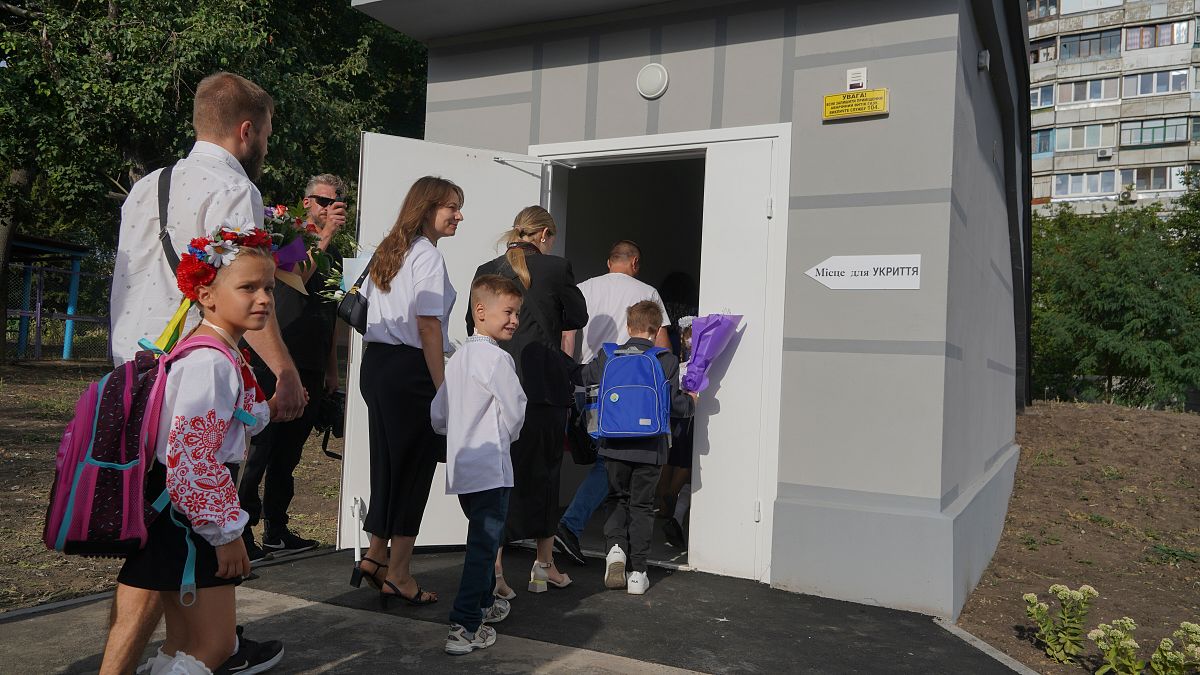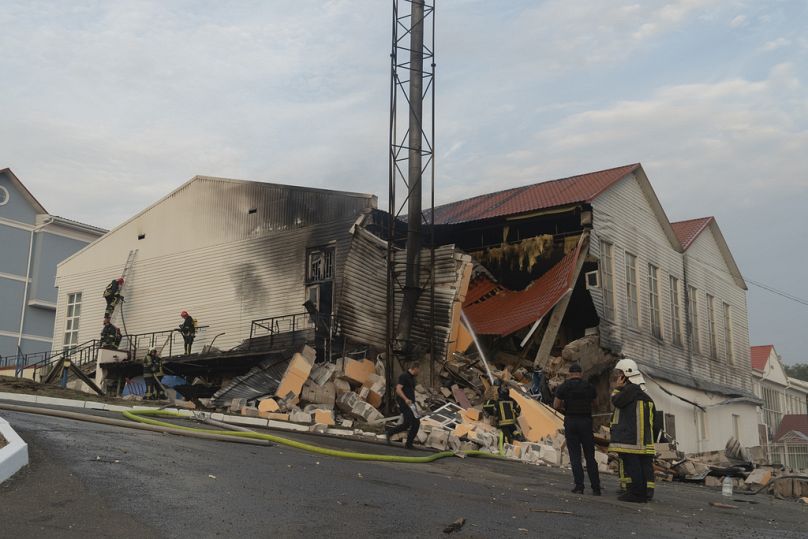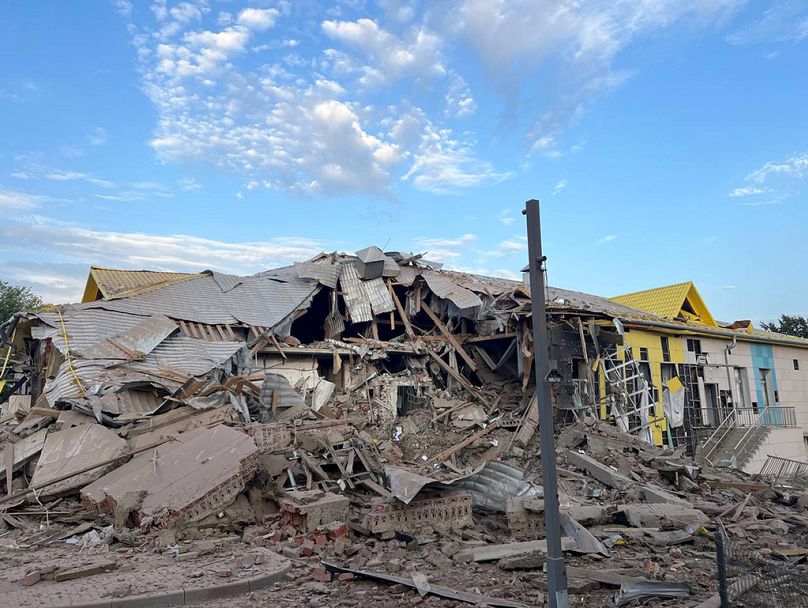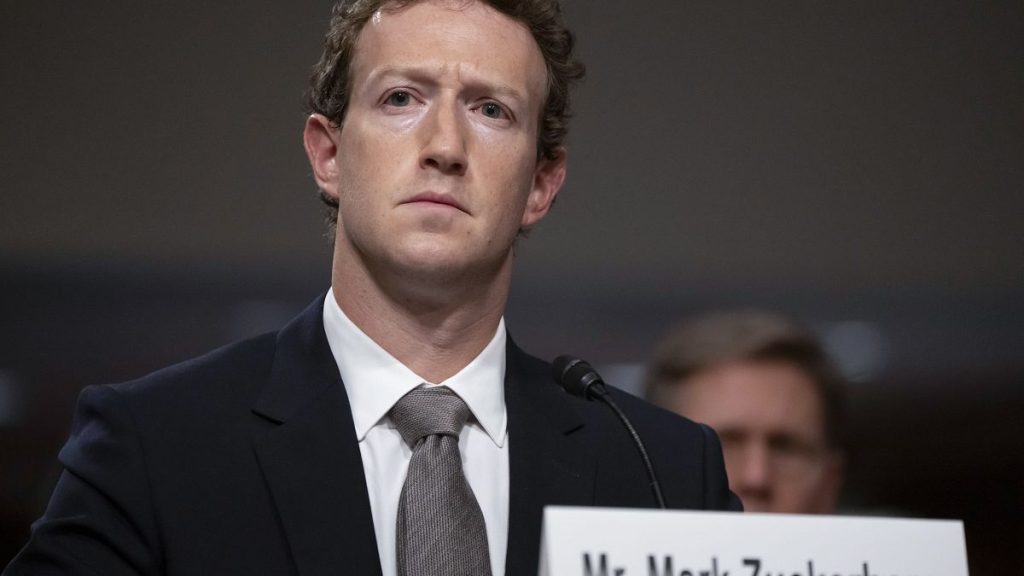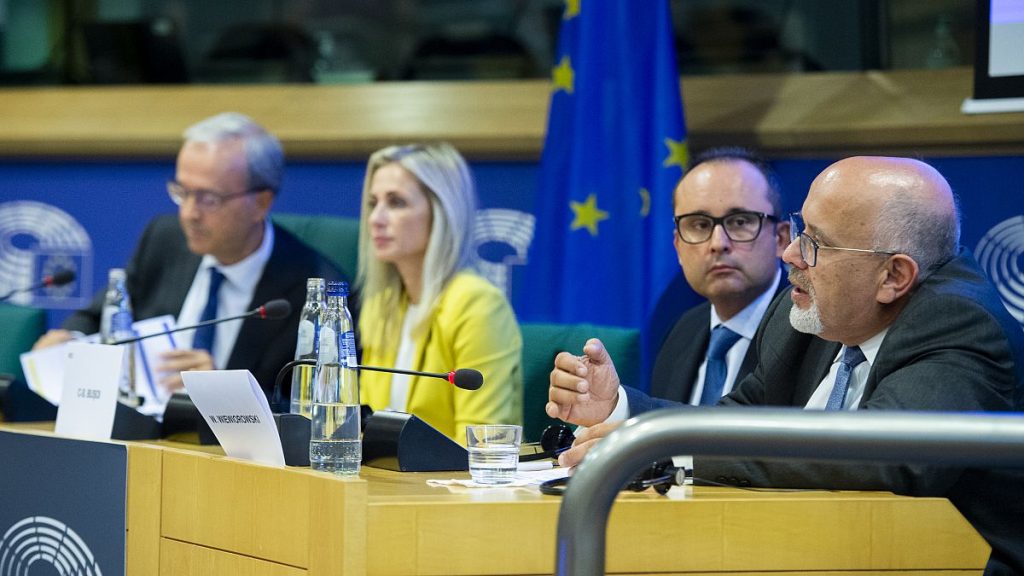Ukrainian families’ determination to keep their children learning is running up against the harsh reality of Russia’s continuing assault.
Children across Ukraine were all set to return to school on Monday, but many found their classes cancelled due to damage from a series of explosions from Russian attacks — and while some pupils set foot in a classroom for the first time in their lives, others found themselves attending classes in bomb shelters.
In Kyiv, children and parents gathered outside a damaged school as firefighters put out flames and removed rubble.
One mother arrived with her 7-year-old daughter, Sophia, unaware it had been hit. It was Sophia’s first day at a new school, her mother said, after a frightening night.
“We hid in the bathroom, where it was relatively safe,” said the mother.
On a visit to Zaporizhzhia, near the front line, Ukrainian President Volodymyr Zelenskyy and Dutch Prime Minister Dick Schoof attended the opening of the academic year at a shelter that is now serving as an underground school.
“It must never be normal for children to have to go to school underground. It must never become normal for people’s homes to be cold because power plants have been bombed,” Schoof said.
The Dutch premier took the opportunity to gift several copies of Dutch children’s books to Ukrainian students.
“We had a number of Dutch books translated, including ‘Jip en Janneke’, so I was able to hand that out to the six and seven-year-olds, » he said. « That was really nice, to be able to give something that almost every Dutch person grew up with to this school. »
Schoof also reaffirmed his country’s stance on the war and its entire support to Ukraine, announcing he is allocating more than €200 million to support the country’s energy infrastructure in the face of almost daily Russian attacks.
Learning while displaced
Many Ukrainians who fled to neighbouring Poland have continued their Ukrainian studies remotely, without ever returning to a traditional classroom.
That has now changed for many of them. The new school year began yesterday under a new Polish law that requires Ukrainian refugee children to attend school in person.
Families who don’t comply risk losing the 800 zloty (€187) monthly benefit that citizens and refugees receive for each child under 18.
The only exception is for students entering their final year of high school, as Poland’s Education Ministry acknowledges the difficulty of mastering the Polish curriculum and language in time for graduation exams in the spring.
Poland, with the second-largest population of Ukrainian war refugees in the West after Germany, hosts a significant number of women and children. As of June, UNHCR estimated that over 957,000 Ukrainian refugees were in Poland, a nation of 38 million.
